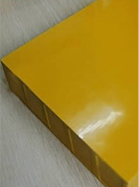loading...
- No. 9, Xingyuan South Street, Dongwaihuan Road, Zaoqiang County, Hengshui, Hebei, China
- admin@zjcomposites.com
- +86 15097380338
- Welcome to visit our website!
Cost Analysis of Fiberglass Rebar for Construction Projects and Its Benefits
The Cost of Fiberglass Rebar A Comprehensive Overview
In recent years, the construction industry has increasingly embraced fiberglass rebar as a superior alternative to traditional steel rebar. Known for its lightweight, corrosion-resistant properties, fiberglass rebar not only enhances structural integrity but also offers significant long-term cost savings. As a result, understanding the price of fiberglass rebar is crucial for contractors, engineers, and project managers alike.
What Determines the Price of Fiberglass Rebar?
The pricing of fiberglass rebar is influenced by several key factors. First and foremost, the type and grade of fiberglass used play a significant role. Fiberglass rebar is available in various grades, which differ in tensile strength and durability. Higher-grade fiberglass rebar offers enhanced performance but comes at an increased cost. Projects that require robust structural capabilities often warrant the use of these higher-quality materials, reflecting their price in the project's overall budget.
Another important factor is the diameter of the rebar. Typical diameters range from 0.5 inches to 1 inch or more, with larger diameters generally costing more due to the increased material usage and manufacturing complexities. Additionally, the length of the rebar pieces can also affect pricing. Standard lengths may be cheaper, while customized lengths necessitate additional costs due to the need for specialized cutting or handling.
Market Trends and Price Comparisons
The market for fiberglass rebar has seen fluctuations in pricing, often influenced by global demand for construction materials and advancements in production technology. Generally, the cost of fiberglass rebar is higher than that of conventional steel rebar. While steel rebar may range from $0.30 to $0.70 per pound, fiberglass rebar prices typically fall between $0.70 to $1.50 per pound, depending on the factors mentioned earlier.
fiberglass rebar price

Despite the higher upfront costs, many projects can benefit from the advantages offered by fiberglass rebar. For instance, in environments where corrosion is a significant concern—such as coastal regions or areas prone to chemical exposure—the longevity and durability of fiberglass rebar can result in lower maintenance and replacement costs over time. This consideration often leads to a more favorable total cost of ownership, making fiberglass rebar a cost-effective solution in the long run.
Long-Term Value over Initial Cost
While the initial costs of fiberglass rebar may deter some contractors, it is essential to evaluate the long-term value it provides. One of the most significant advantages of fiberglass rebar is its resistance to corrosion. Unlike steel, which can rust and degrade over time, fiberglass rebar remains intact, ensuring the longevity of the structures it supports. This property is particularly beneficial for projects that encounter wet conditions, de-icing salts, or aggressive chemicals, where traditional rebar may fail prematurely.
Additionally, the lightweight nature of fiberglass rebar can streamline construction processes, reducing labor costs associated with handling and installation. Because fiberglass rebar is easier to cut and transport, it can lead to faster project completion times.
Conclusion
In conclusion, while the price of fiberglass rebar is typically higher than that of traditional steel options, the long-term benefits often outweigh these initial costs. Factors such as material quality, diameter, length, and current market trends all contribute to its pricing. As the construction industry continues to evolve and prioritize sustainability and durability, fiberglass rebar is likely to become an ever more valuable resource. Budgeting for fiberglass rebar in construction projects not only ensures structural integrity but also aligns with future-oriented building practices. For contractors and project managers, investing in fiberglass rebar is a strategic move towards achieving robust, lasting construction that meets the demands of modern building and environmental standards.
-
GRP Structures: The Future of Lightweight, High-Performance EngineeringNewsJun.20,2025
-
FRP Water Tank: High-Performance Storage for Corrosive and Clean Water SystemsNewsJun.20,2025
-
FRP Square Tube: The New Industry Standard for Chemical and Structural ApplicationsNewsJun.20,2025
-
FRP Pultruded Profiles: The Ultimate Choice for Lightweight Structural StrengthNewsJun.20,2025
-
FRP Handrails: The Safer, Smarter, and Stronger Choice for Modern InfrastructureNewsJun.20,2025
-
FRP Grating: The Smart Solution for Durable, Lightweight Industrial FlooringNewsJun.20,2025
-
Why Choose a Galvanized Water Tank for Your Storage NeedsNewsMay.21,2025
